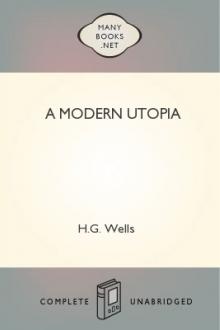tal conflict of life, within the possibilities of the human mind as we know it. We permit ourselves also a free hand with all the apparatus of existence that man has, so to speak, made for himself, with houses, roads, clothing, canals, machinery, with laws, boundaries, conventions, and traditions, with schools, with literature and religious organisation, with creeds and customs, with everything, in fact, that it lies within man's power to alter. That, indeed, is the cardinal assumption of all Utopian speculations old and new; the Republic and Laws of Plato, and More's Utopia, Howells' implicit Altruria, and Bellamy's future Boston, Comte's great Western Republic, Hertzka's Freeland, Cabet's Icaria, and Campanella's City of the Sun, are built, just as we shall build, upon that, upon the hypothesis of the complete emancipation of a community of men from tradition, from habits, from legal bonds, and that subtler servitude possessions entail. And much of the essential value of all such speculations lies in this a

Write Your Reviews